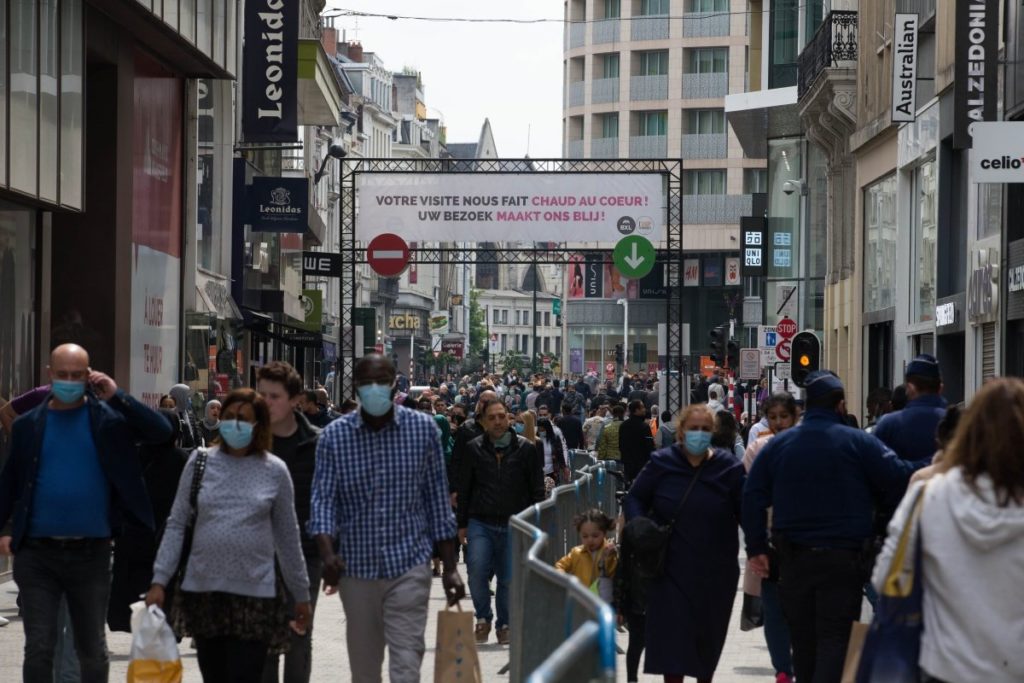The relaxations of the measures to stop the further spread of the new coronavirus (Covid-19) have had no effect on the figures, said the Federal Public Health Service during a press conference on Friday.
Phase 1B of Belgium's exit plan out of lockdown went into force on 10 and 11 May, when people were allowed to receive up to four guests in their homes, and the shops reopened.
"That was 19 days ago, so that is enough to see a possible effect on the figures. And as you have seen, the figures are still evolving well," said virologist and inter-federal Covid-19 spokesperson Steven Van Gucht.
"In fact, we do not see any effect of those relaxations. However, it is important to realise that those phases started at a certain point in time, but people have adapted their behaviour only very gradually," Van Gucht said.
"The restart happened gradually and cautiously, which we can see with the gradual increase in traffic, the fact that there was no rush in the shops or to the coast. People are doing this in a cautious and responsible way. That gives confidence for the future and for future relaxations," he said.
Related News
- Coronavirus: herd immunity in Belgium still 'a distant dream'
- Coronavirus: summer heatwaves will be challenging
- Coronavirus: 212 new infections, 27 hospital admissions in Belgium
"We do not think it is going too fast, and for the time being we see that the trends are still evolving in a positive direction, so I think we should be happy about that," Van Gucht added.coro
The experts considered three possible scenarios. That of a slight increase in the figures, showing that the virus would resurge again, that of a stabilisation, and that of a further decline.
"At the moment, there is still a slow but consistent decline in all the parameters we follow, so this is actually the most favourable scenario. For now," Van Gucht said.
"There is no guarantee it's going to stay that way. There are going to be more and more relaxations. The restart is gradual, and people are not changing their behaviour immediately, so it is still possible that this will change in the future," he added.
Maïthé Chini
The Brussels Times

